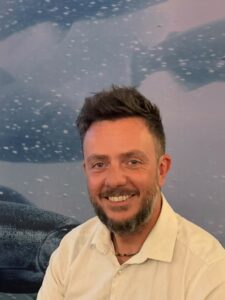Seed funding announced for aquaculture projects

Seaweed cultivation, cleaner fish life cycle assessment and the carbon footprint of pangasius production are among the topics covered by four seed funding projects announced by the Centre for Innovation Excellence in Livestock (CIEL).
They are the first aquaculture projects to be funded by CIEL, which was set up by the UK government as one of four Agri-Tech centres. CIEL works in partnership with many of the UK’s leading livestock research institutions and a network of industry members spanning the entire food supply chain, from pre-farmgate to retail.
CIEL added aquaculture to its remit last year. The themes for the latest seed funding round are:
- Seaweed mariculture and, specifically, the application of seaweed as a feed for livestock; and
- Life cycle assessment (LCA) of aquaculture species.
CIEL Chief Executive, Lyndsay Chapman, said: “From exploring the viability of high protein seaweeds in a cost-effective way, to assessing the effect of functional feed ingredients on salmon performance – these innovative projects cover areas identified as critical to help drive a sustainable and productive future for the sector.
“Agriculture and aquaculture face many similar challenges that require world-leading science-based solutions and innovative technologies & systems. This must be embraced if we are to capitalise on the opportunities that lay ahead.”
Martin Sutcliffe, CIEL’s aquaculture specialist, explained: “CIEL works collaboratively across the agrifood sector, encouraging knowledge exchange while utilising the academic expertise that underpins the Centre’s network. Bringing agrifood and aquaculture together is one of the main goals of this work.
“These are ‘seed’ projects designed to be developed further in the future, helping to drive the industry forward.”

Martin Sutcliffe, CIEL
The selected seaweed project involves start-up company, Seaweed Generation Ltd, which will be looking at growing protein as feed for egg-laying hens. Nutrient analysis of the content of the seaweeds will be undertaken by University of Stirling and prepared dried seaweeds fed to a number of egg laying hens to test their response to the addition of seaweeds in their diet. The nutritional data, outcomes from the feed trials will be prepared for public dissemination.
Another project, led by Hilton Foods, will evaluate greenhouse gases (GHGs) from pangasius (basa) farms in Vietnam, destined for consumption in the UK. Basa is the third most consumed fish in the UK but, CIEL says, it is under-researched and it is currently hard to estimate the sector’s carbon footprint.
The project will also allow Hilton to ensure its GHG reporting is accurate and to target carbon reduction improvements at farm level.
Working with the University of Stirling, the project will record emissions from pangasius ponds directly at farms in Vietnam as well as gathering qualitative data on farm practices (feed inputs, water exchanges, sediment management etc).
To ensure the measurement is representative of the full lifecycle the emissions will be measured at ponds in different stages of the pangasius lifecycle. The results of this project will be used to create more robust life cycle assessment (LCA) for this particular fish type.
A third project involves assessing LCA for warm water prawns in the UK. There is currently no production of this kind, but the project, led by Land Ocean Farms which aims to produce prawns in the UK for the home market, aims to estimate what its carbon footprint could be and what savings in terms of GHGs could be achieved by domestic production. Currently prawns imported to the UK travel up to 10,000 miles in a sea freight freezer over 45 days.
There are no fresh prawn farms currently in the UK. Land Ocean Farm will develop commercial prawn farming in the UK, taking the lead by capitalising on existing know-how and technologies driven by high efficiency and vertical integration from breeding to processing. Using recognised software, the project will enable work with specialists to help identify likely impacts and identify the resource data issue for LCAs in this sector.
The fourth project is focused on enhancing the LCA of cleaner fish as a sustainable tool for sea lice management, with improvements that could have positive impacts on the salmon industry in Scotland.
Despite huge improvements in cleaner fish husbandry, ballan wrasse biology means they often have difficulty in nutrient absorption from traditional feeds. Moving from live feeds to formulated feeds in early life stages is particularly challenging. Led by feed specialist Anpario, this project will focus on the effect of functional feed ingredients on the performance, immune system and microbiome of juvenile ballan wrasse and look to demonstrate that the use of such ingredients can limit mortality rates of ballan wrasse during production.
The potential improvement to the cleaner fish stock, CIEL says, would have positive impacts on the LCA of the salmon industry in Scotland.
All four projects are due to be completed during 2023.


